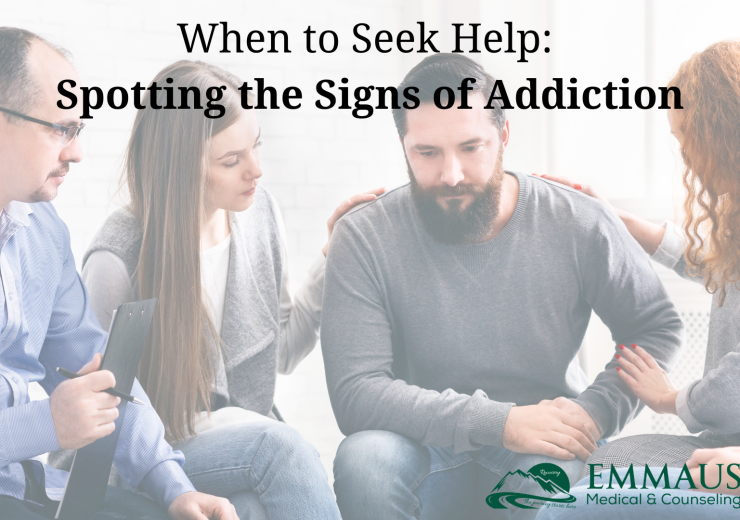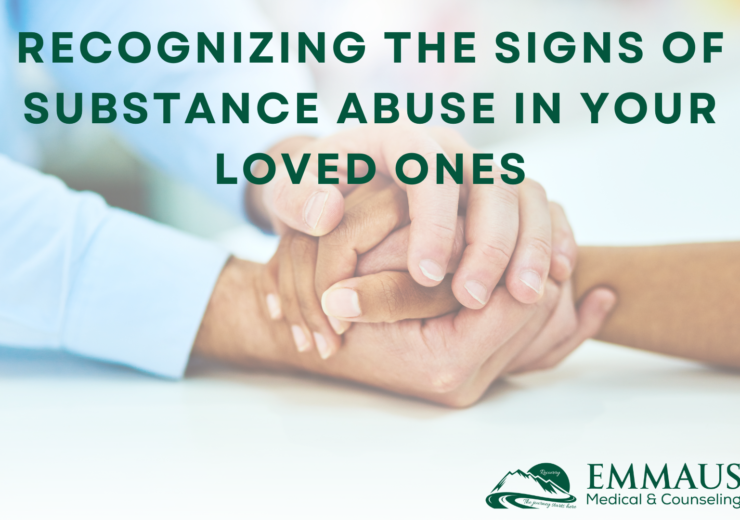When to Seek Help: Spotting the Signs of Addiction
Addiction is a formidable force that affects millions of individuals and their families worldwide. Whether it’s an addiction to drugs, alcohol, or even prescription medications, its impact is far-reaching and often devastating. Recognizing the signs of addiction early and seeking professional help can make all the difference in reclaiming life and restoring harmony within families. This blog post aims to provide valuable insights into identifying signs of addiction and offers guidance on approaching a loved one who may need help. Addiction doesn’t happen overnight; it’s a complex and gradual process that often begins with initial use, which might seem harmless at first. This initial experimentation can lead to increased consumption, and before long, it can spiral into a state of dependence that affects various aspects of an individual’s life. Understanding this intricate cycle is crucial, as it can help demystify the nature of addiction, revealing how easily it can take hold. By highlighting the signs of addiction and the importance of early intervention, we emphasize the potential for recovery and the need for support systems that can guide individuals toward healthier choices before their situation becomes more severe. Addiction typically starts with experimentation or casual use. Over time, the individual may use the substance more frequently and in larger amounts to achieve the desired effect. This leads to tolerance, where the body requires more substance to feel the same effects. Eventually, dependence sets in, and the individual feels compelled to use the substance just to function normally. Several factors can contribute to the development of addiction, including genetic predisposition, social environment, and psychological issues. For some, a family history of addiction increases the likelihood of developing similar issues. Others may turn to substances as a way to cope with stress, trauma, or mental health disorders. One common misconception is that addiction only occurs with illegal drugs. However, prescription medications, over-the-counter drugs, and even household items like glue or spray paint can lead to addiction. Understanding that addiction is a disease, not a moral failing, is crucial in providing the right support and seeking appropriate treatment. Recognizing the signs of addiction is the crucial first step toward seeking help and initiating recovery. These signs can manifest in various ways, including physical symptoms such as changes in appearance, weight fluctuations, or withdrawal symptoms. Behaviorally, individuals may exhibit signs such as increased secrecy, loss of interest in activities once enjoyed, or neglecting responsibilities. Psychologically, addiction may lead to mood swings, anxiety, or depression. Being aware of these signs is vital, as it can empower individuals to take action and reach out for support before the addiction escalates further. The effects of drug addiction extend far beyond the individual, significantly impacting various aspects of life. Health deteriorates as addiction takes hold, leading to a range of physical and mental health issues, including chronic illnesses and emotional instability. Relationships suffer as trust erodes and communication breaks down, causing rifts between family members, friends, and partners. Furthermore, work or study life is disrupted, with decreased productivity, absenteeism, and a lack of focus, often resulting in job loss or academic failure. Ultimately, drug addiction creates a ripple effect that affects not only the person struggling with the addiction but also their loved ones and professional environment. Addiction can lead to severe health issues, including heart disease, liver damage, mental health disorders, and increased risk of infections. Without intervention, these health problems can become life-threatening. Addiction often strains relationships with family and friends. Trust is broken, and conflicts arise, leading to isolation and loneliness. The emotional toll on loved ones can be immense, as they struggle to understand and support the addicted individual. Substance abuse can result in poor performance at work or school, leading to job loss or academic failure. The individual’s ability to concentrate, meet deadlines, and maintain responsibilities diminishes, further exacerbating the cycle of addiction. Approaching a loved one about their addiction can be challenging. It’s essential to do so with empathy, understanding, and a clear plan. Personal stories and testimonials can provide hope and inspiration for those struggling with addiction and their loved ones. “Great staff and doctors! They truly go out of their way to help. I was working out of town and couldn’t make my appointment. They went out of their way to do a telehealth visit to make sure I got my medication and didn’t relapse.” – Stacy Harrington “I started going here when they first opened as Foundation Medical and stayed once Dr. Backus and his staff became Emmaus. I absolutely love it here. They are so welcoming and make you feel important. They don’t judge you for anything you share with them.” – Carla Church “I’ve been with this clinic since they opened the doors as Foundation Medical and stayed through the transition to Emmaus. I absolutely love the staff here. They are kind, caring, and understanding. They will go above and beyond to help you with whatever you might need.” – Brayden Church Seeking professional treatment is crucial for effective recovery, as it provides individuals with the guidance and support necessary to navigate their journey. Various evidence-based programs are available, each designed to cater to different needs and preferences, ensuring that everyone can find an approach that resonates with them. These programs often include personalized therapy sessions, group support, and holistic practices, all aimed at addressing the unique challenges faced by individuals in recovery. By choosing the right program, individuals can enhance their chances of achieving long-term success and well-being. Professional treatment programs offer structured support, medical supervision, and personalized care plans. These programs address the physical, emotional, and psychological aspects of addiction. Emmaus Medical & Counseling offers comprehensive treatment programs tailored to individual needs. Our team of highly trained professionals is dedicated to providing compassionate and effective care. Recognizing the signs of addiction and seeking help early can make a significant difference in the recovery process. Addiction affects not only the individual but also their loved ones. By understanding the signs and approaching the situation with empathy and support, families and friends can play a vital role in the recovery journey. If you or a loved one is showing signs of addiction, don’t hesitate to reach out for professional help. Contact Emmaus Medical & Counseling to explore our evidence-based treatment programs and take the first step towards a healthier, happier life. Get in touch with our admissions team to learn more about how we can support you or your loved one on the path to recovery.Understanding Addiction
Breaking Down the Addiction Cycle
Factors Contributing to Addiction
Misconceptions About Addiction
Signs of Addiction
Physical Signs of Addiction
Behavioral Signs of Addiction
Psychological Signs of Addiction
Real-Life Examples
Effects of Drug Addiction
Health Consequences
Relationship Strain
Professional and Academic Impact
Guidance for Families and Friends
How to Have a Supportive Conversation
Offering Support Without Enabling
Incorporating Personal Stories
Stacy’s Journey
Carla’s Testimonial
Brayden’s Experience
Importance of Professional Help
The Value of Professional Treatment
Evidence-Based Programs
Emmaus Medical & Counseling Services
Conclusion






